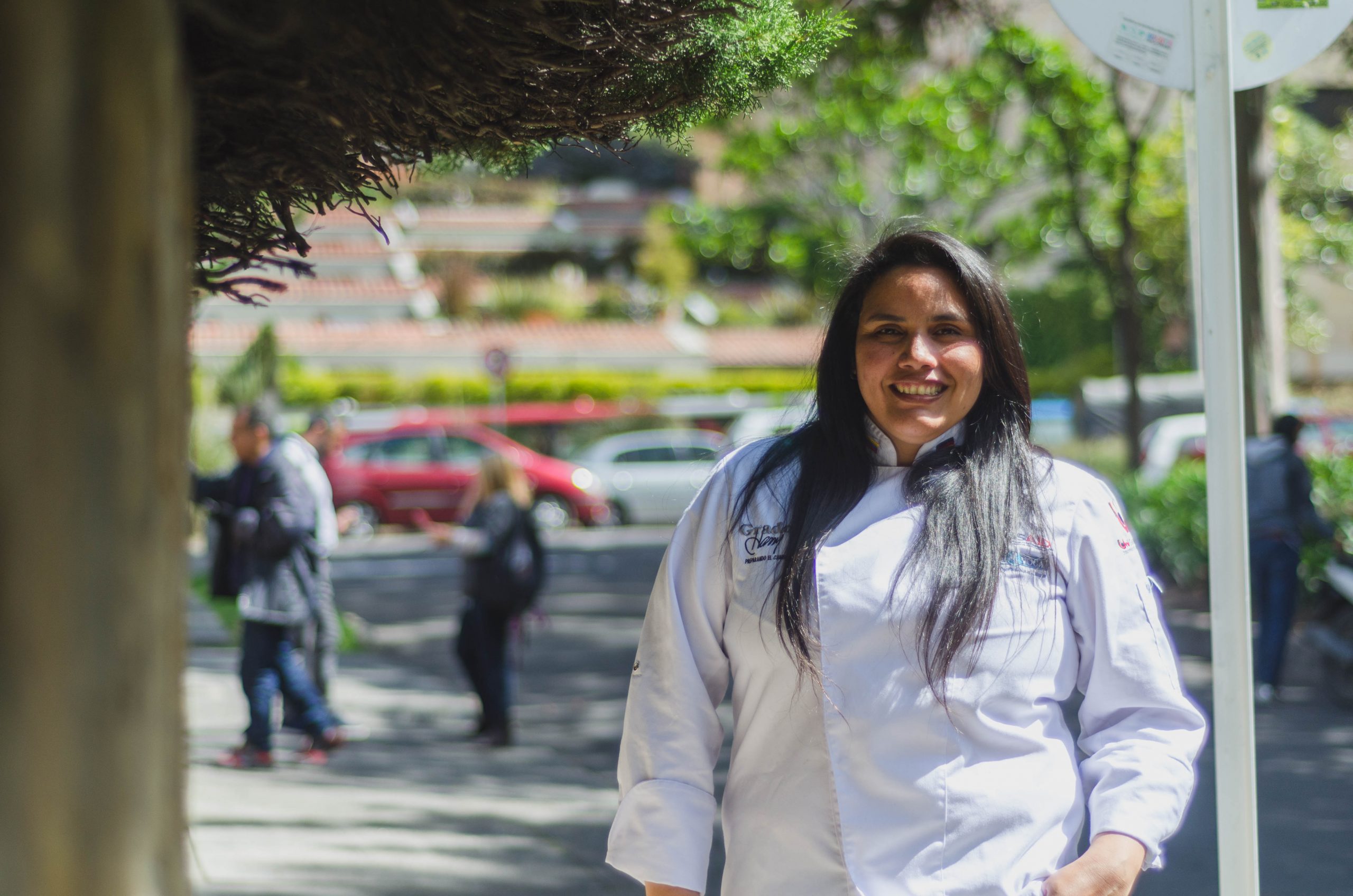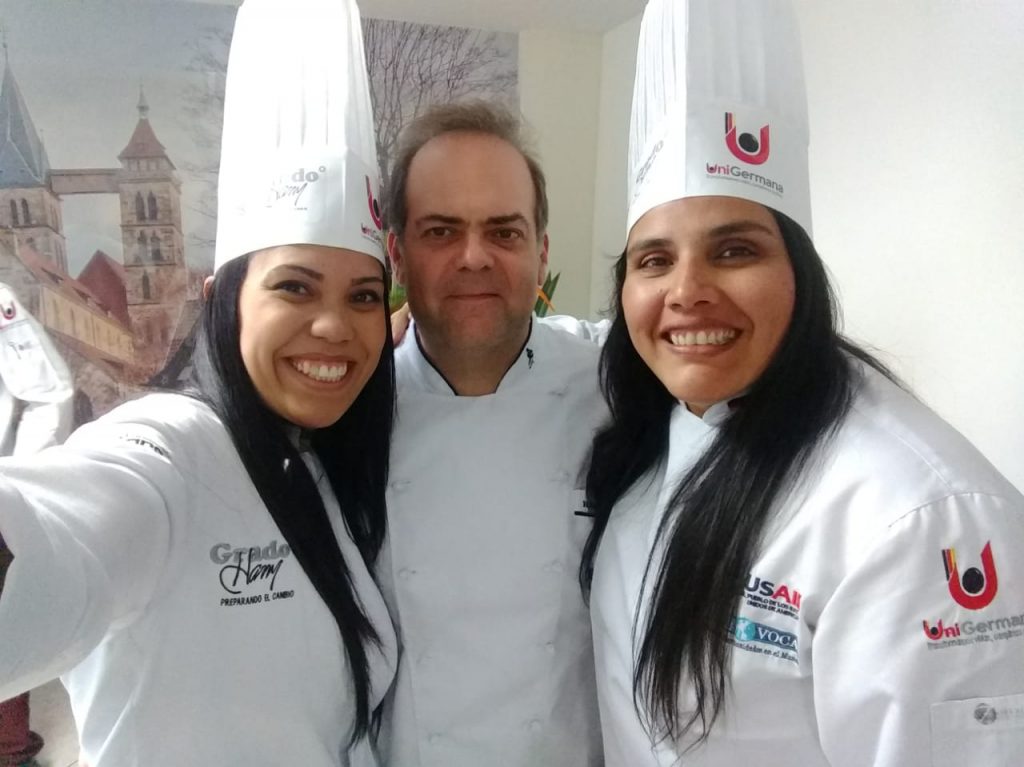
Youth culinary training program promotes inclusion for new Bogotá residents
Venezuelan migrants are far from empty-handed when they arrive in Colombia. They bring their dreams, talents, and, in many cases, years of professional experience that constitute a boon for the host country’s economy. Despite this potential, the population faces significant barriers to employment. Challenges ranging from obtaining work permits to overcoming local prejudices force many migrants to work in the informal economy, where they are often vulnerable to exploitation and long-term socioeconomic exclusion.
The employment arm of the USAID Program of Alliances for Reconciliation, implemented by ACDI/VOCA, addresses this gap by including Venezuelan migrants in the initiative’s job training program. One of the initiatives implemented by Empleo para la Reconciliación (Employment for Reconciliation) is a three-month training scheme called Grado Harry that provides training to young people aged 18-35 from marginalized areas. Through the program, which works alongside celebrated chef Harry Sasson, participants gain skills to work in food and beverage industry.
Venezuelan Migrants Gain Job Skills Through Culinary Training
Venezuelan migrant María José Molina found success through the program and is now working at a restaurant in Bogotá. The 32-year-old with a passion for cooking says she always dreamed of opening a bakery, but the cost of culinary school was too steep in her hometown.

After migrating to Colombia, María José was unemployed and looking for opportunities until she learned about the Grado Harry program. She and another Venezuelan participant in the group quickly made an impression on their classmates and professors, standing out for their positive attitudes and work ethic. The pair used food to form bonds with their classmates, sharing traditional Venezuelan dishes such as hallacas and mastering Colombian classics like hogao.
“Cooking unites people. It can unite continents, it can unite people within any country, it can unite us all. Food has the power to bring people together.”
María José Molina, project participant
DecidoSer Support Tool Builds Trust and Forges Common Bonds
In addition to empowering participants with practical skills for future employment, the training program incorporates ACDI/VOCA’s DecidoSer methodology that builds trust, respect, and dialogue. Maria José says these activities helped to generate empathy for her and her Venezuelan classmate as the group began to put themselves in their shoes. She recounts an exercise in which participants were invited to close their eyes and imagine they had to put everything valuable to them into one backpack. When the Venezuelan participants shared what they had in their backpacks, classmates were moved to hear about what they had to leave behind when they migrated: their family, their house, even their pets. This helped to increase solidarity and bring the group closer, she says.
“We had to learn to accept and understand each other. Learning to coexist with so many people in just three months was a challenge, but teamwork is important. It’s very rewarding when everyone works together to ensure that the dish turns out delicious.”
– María José Molina, project participant
One of the activities the group participated in during the course was cooking a meal for 150 people at a shelter in downtown Bogotá, the majority of whom were Venezuelan migrants. They were joined by Chef Sasson who cooked sancocho, a typical Colombian soup, alongside them. To add cross-cultural flavor to the event, the chef asked the Venezuelan students to teach the group how to prepare reina pipiada arepas, a popular Venezuelan treat stuffed with avocado and chicken.
The event helped to promote dialogue both between the participants and the guests and also highlighted similarities between Venezuelans and Colombians, rather than focusing on differences. It also strengthened teamwork as everyone had to work together to prepare and serve the dishes.
Soon after completing the course, María José began working at a restaurant in Bogotá and she has no doubt that the skills she learned will continue to open doors for her.
“The most powerful thing for me was being able to finish something, as it had been a long time since I’d been able to do that. It was very rewarding to learn from the professors and it was amazing to be able to finish the program successfully despite the setbacks I’ve faced.”
– María José Molina, project participant
Learn more about our Program of Alliances for Reconciliation here.
Learn more about our work in Colombia here.
Learn more about our work impacting Venezuelans here.








